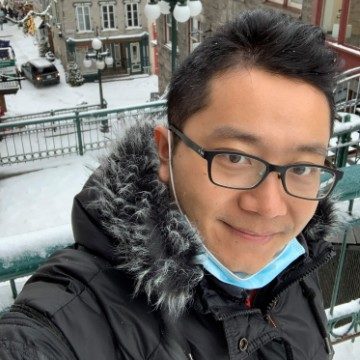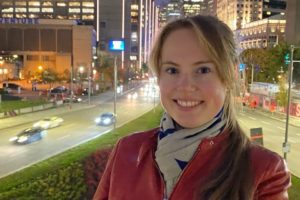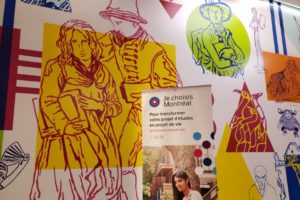Working in Montréal as an international graduate

Transitioning from an being international student to working in Montréal has been an exciting journey. After completing a Master’s degree in economics in the city, I was as confused and as lost as a lot of other students and newly arrived immigrants. Finding a job not only helped me get to know myself better, but also helped my integration in Montréal.
Finding a job in Montréal
Start networking
One of my first jobs in the city was working in a data lab of Statistics Canada. It was a great experience as a student working on my master’s thesis, but beyond that, it helped me connect with other professors in their field of research. Networking in Montréal is a great way to find a job. It is never guaranteed, but you never know when a new contact could make a huge difference. For instance, my supervisor at Concordia University was the one who connected me with the lab. Take any chances you get to network! You could even make a friend.
However, my career goal was not to work in academia. Therefore, I started looking for jobs in the industry. During my job hunting journey, I discovered that the Québec government offers a lot of services to help residents find jobs, such as helping with work permits, preparing for interviews, or connecting employers with the right employees. In my case, I discovered LGS/IBM through a discovery day IBM organized in collaboration with I choose Montréal, an initiative of Montréal International.
Open door day thanks to I choose Montréal
In 2019, I choose Montréal collaborated with LGS/IBM to have an open door day so that international students could get the chance to talk with the company’s employees. That night, free food and drinks were provided; the atmosphere was very welcoming and I had good conversations with the people there. I had brought a few copies of my CV and gave them away during the event.
Several months later, I got a call from one of the recruiters asking if I was available for an interview because a position was available. I was a little bit stressed at first, but I knew my CV well and I knew that my credentials and skills matched with the position of Oracle Functional Analyst. In the end, the interview went smoothly and I felt very comfortable. As an international student who was holding a Post-Graduation Work Permit (PGWP), I did not feel that I was treated differently during the hiring process. After a while, I got my Permanent Residency of Canada before the end of my PGWP, so I’ve never had any issues working for LGS/IBM.



3 years of working experience in Montréal
The past three years at LGS/IBM have been wonderful. I am very grateful for the learning opportunities and professional experiences that I’ve gained. I still vividly remember when I first started working for LGS/IBM. I was very excited, but also a little worried since it was my first job, and I did not know much about ERP planning, implementation, or reporting tools. Fortunately, I was trained in Oracle ERP, CRM, HCM, etc., in addition to the mandatory IBM training.
I am very thankful for the mentors I’ve had at LGS/IBM. Christian Guidibi is one of them. He showed me the in’s and out’s of Oracle technology. For example, the General Ledger certification is a tough exam; it took me 4 times to succeed it. Christian took the time to answer my questions and walked me through the concepts and key points multiple times within the ERP systems.
My colleagues were also willing to help me throughout their busy schedule. With intensive studying, I learned a lot of technical skills, presentation skills, consulting skills, and I grew a lot in terms of interpersonal skills. When facing new challenges on projects, I could apply the skills that I had learned to resolve real business problems. This is helping me grow into an independent tech consultant.



French is a crucial tool
Speaking French is fun and very important in Québec with French being the official language. Neither French nor English are my native language, therefore, I had a language barrier to overcome. I first started learning French in China, and when I arrived in Montréal, I continued at Concordia university where I was studying. After graduation, I took courses offered by the Ministère de l’Immigration, de la Francisation et de l’Intégration (MIFI) to improve my language skills. The French class was great for learning and building confidence. I work full-time during the weekdays, and still take 6 hours of courses during the weekend. Continuously practicing definitely helps reduce the language barrier.
Looking back
When I look back on my journey, I realize that hard work was the key. Learning how to prepare my CV, passing the Oracle certification exam and every step in between, was critical. However, success is never a one-man show. All the help I received—big and small—led me to where I am today. I am truly grateful for this journey and the people I met along the way. I hope that my story inspires you for your journey in Montréal. And I wish you all the best!
The views expressed in this article are those of the author and do not necessarily reflect those of Montréal International.



